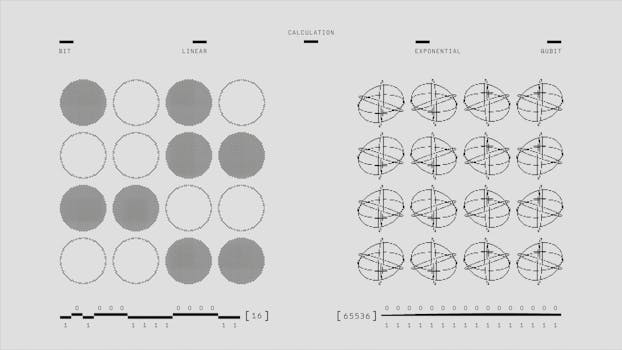
Understanding Quantum Mechanics and its Implications for Reality
Quantum Mechanics and its implications for reality is a fascinating topic that has garnered significant attention in recent years. Quantum Mechanics is a branch of physics that deals with the behavior of matter and energy at the smallest scales, and its implications for our understanding of reality are profound.
Introduction to Quantum Mechanics

Quantum mechanics is a fundamental theory in physics that describes the behavior of particles at the atomic and subatomic level. It provides a new and innovative way of understanding the physical world, and its principles have been used to explain a wide range of phenomena, from the behavior of electrons in atoms to the properties of solids and liquids.
One of the key features of quantum mechanics is the concept of wave-particle duality, which states that particles, such as electrons, can exhibit both wave-like and particle-like behavior depending on how they are observed. This concept has been demonstrated through numerous experiments, including the famous double-slit experiment, which shows that electrons can pass through two slits and create an interference pattern on a screen, just like waves.
Implications of Quantum Mechanics for Reality

The implications of quantum mechanics for our understanding of reality are far-reaching and profound. One of the most significant implications is the concept of non-locality, which states that particles can be instantaneously connected, regardless of the distance between them. This concept has been demonstrated through experiments such as quantum entanglement, which shows that two particles can be connected in such a way that the state of one particle is instantly affected by the state of the other, regardless of the distance between them.
Another significant implication of quantum mechanics is the concept of uncertainty, which states that certain properties of particles, such as position and momentum, cannot be precisely known at the same time. This concept has been demonstrated through experiments such as the Heisenberg uncertainty principle, which shows that the act of observing a particle can actually change its behavior, making it impossible to precisely know its position and momentum at the same time.
Applications of Quantum Mechanics

Quantum mechanics has a wide range of applications, from the development of new technologies such as transistors and computer chips, to the creation of new materials with unique properties, such as superconductors and nanomaterials. It has also been used to explain a wide range of phenomena, from the behavior of electrons in atoms to the properties of solids and liquids.
One of the most exciting applications of quantum mechanics is the development of quantum computing, which uses the principles of quantum mechanics to perform calculations that are exponentially faster and more powerful than classical computers. This has the potential to revolutionize a wide range of fields, from medicine and finance to climate modeling and optimization problems.
Conclusion

In conclusion, Quantum Mechanics and its implications for reality is a fascinating topic that has the potential to revolutionize our understanding of the physical world. From the concept of wave-particle duality to the implications of non-locality and uncertainty, quantum mechanics has been used to explain a wide range of phenomena and has the potential to lead to breakthroughs in a wide range of fields.






